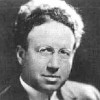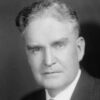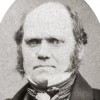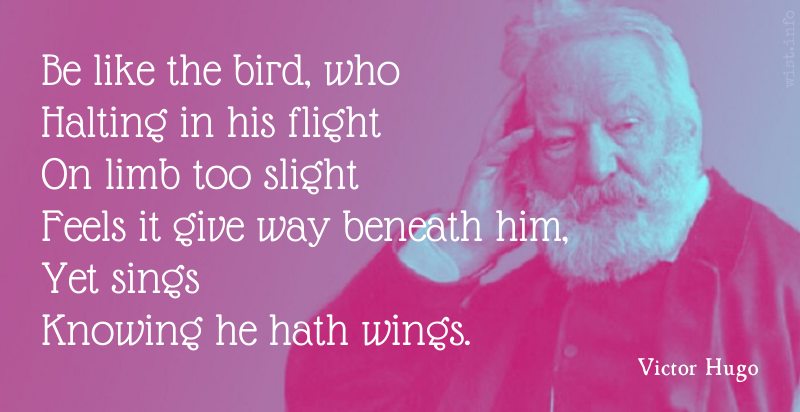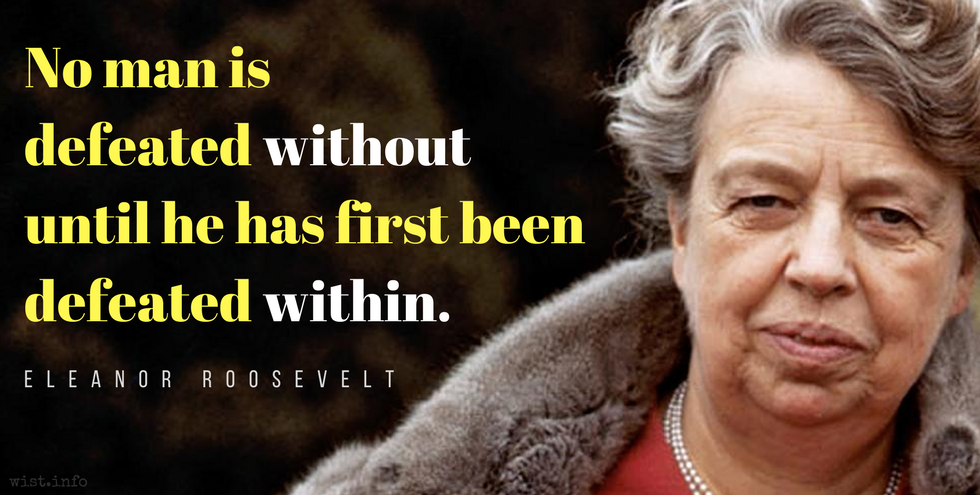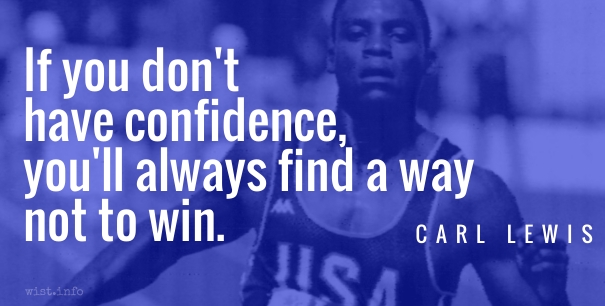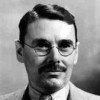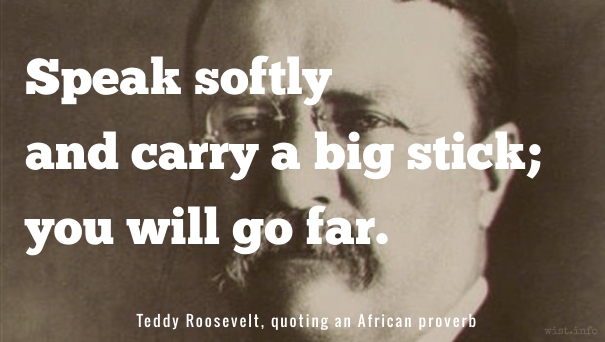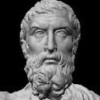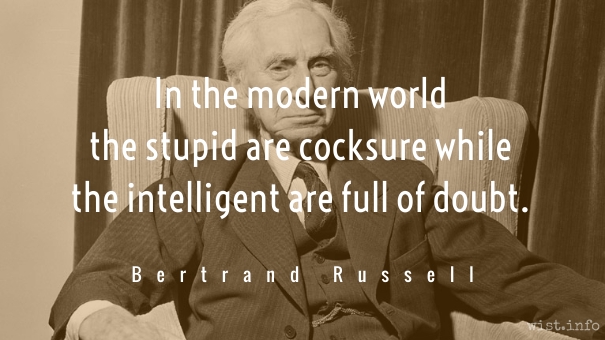It is wise to be sure, but otherwise to be too sure.
Sophie Irene Loeb (1876-1929) Ukrainian-American journalist, activist
Epigrams of Eve, “Wise and Otherwise” (1913)
(Source)
Quotations about:
confidence
Note not all quotations have been tagged, so Search may find additional quotes on this topic.
They’re talking about things of which they don’t have the slightest understanding, anyway. It’s only because of their stupidity that they’re able to be so sure of themselves.
Franz Kafka (1883-1924) Czech-Austrian Jewish writer
The Trial, ch. 1 (1925) [tr. Wyllie (2003)]
(Source)
The protagonist Josef K., musing over the minor functionaries who have arrested him on unknown charges.
All you need in this life is ignorance and confidence; then success is sure.
Mark Twain (1835-1910) American writer [pseud. of Samuel Clemens]
Letter to Mrs. Foote (1887-12-02)
(Source)
First reprinted, upon the letter's rediscovery, in The Los Angeles Times (1930-03-16). A facsimile of the discovered letter (with the above punctuation) can be found in B. DeCasseres, When Huck Finn Went Highbrow (1934).
For more discussion about this quotation's origin: All You Need In This Life Is Ignorance and Confidence; Then Success Is Sure – Quote Investigator®.
If one burdens the future with one’s worries, it cannot grow organically. I am filled with confidence, not that I shall succeed in worldly things, but that even when things go badly for me I shall still find life good and worth living.
Esther "Etty" Hillesum (1914-1943) Dutch Jewish law graduate, writer, diarist
Diary (1942-06-11)
(Source)
Collected in An Interrupted Life [Het Verstoorde Leven] (1981) [tr. Pomerans (1983)].
More undertakings fail for want of spirit than for want of sense. Confidence gives a fool the advantage over a wise man.
To lose confidence in one’s body is to lose confidence in oneself.
Simone de Beauvoir (1908-1986) French author, existentialist philosopher, feminist theorist
The Second Sex [Le Deuxième Sexe], Vol. 2, Part 1, ch. 2 (1949) [tr. Borde/Malovany-Chevallier (2009)]
(Source)
But the greatest undertakings should not be overly pondered, lest contemplation of difficulties too clearly foreseen appall you.
[Los grandes empeños aun no se han de pensar, basta ofrecerse, porque la dificultad, advertida, no ocasione el reparo.]
Baltasar Gracián y Morales (1601-1658) Spanish Jesuit priest, writer, philosopher
The Art of Worldly Wisdom [Oráculo Manual y Arte de Prudencia], § 204 (1647) [tr. Fischer (1937)]
(Source)
(Source (Spanish)). Alternate translations:
As to great enterprizes, we must not stand reasoning, it is enough that we embrace them when they present, lest the consideration of their difficulty make us abandon the attempt.
[Flesher ed. (1685)]
Great undertakings are not to be brooded over, lest their difficulty when seen causes despair.
[tr. Jacobs (1892)]
In moments of great danger, don't even think, simply act. Don't dwell on the difficulties.
[tr. Maurer (1992)]
We long for self-confidence, till we look at the people who have it.
Mignon McLaughlin (1913-1983) American journalist and author
The Neurotic’s Notebook, ch. 4 (1963)
(Source)
I haven’t a particle of confidence in a man who has no redeeming petty vices whatsoever.
Mark Twain (1835-1910) American writer [pseud. of Samuel Clemens]
“Answers to Correspondents,” The Californian (17 Jun 1865)
(Source)
Reprinted in The Celebrated Jumping Frog of Calaveras County, and Other Sketches (1867).
Narcissists seem brave, they radiate charismatic energy, and they self-promote like mad. The big thing for narcissists is that they interview very well. Search committees can’t get enough of these guys.
Robert Hogan (b. 1937) American psychologist
In Jeffrey Kluger, The Narcissist Next Door, ch. 6 (2014)
(Source)
It is lack of confidence, more than anything else, that kills a civilization. We can destroy ourselves by cynicism and disillusion, just as effectively as by bombs.
Kenneth Clark (1903-1983) British art historian, museum director, broadcaster
Civilization: A Personal View, ch. 13 “Heroic Materialism” (1969)
(Source)
You see we make our writers into something very strange. […] We destroy them in many ways. First, economically. They make money. It is only by hazard that a writer makes money although good books always make money eventually. Then our writers when they have made some money increase their style of living and are caught. They have to write to keep up their establishment, their wives, and so on, and they write slop. It is slop not on purpose but because it is hurried. Because they are ambitious. Then, once they have betrayed themselves, they justify it and you get more slop. Or else they read the critics. If they believe the critics when they say they are great then they must believe them when they say they are rotten and they lose confidence. At present we have two good writers who cannot write because they have lost confidence through reading the critics. If they wrote, sometimes it would be good and sometimes not so good and sometimes it would be quite bad, but the good would get out. But they have read the critics, and they must write masterpieces. The masterpieces the critics said they wrote. They weren’t masterpieces, of course. They were just quite good books. So now they cannot write at all. The critics have made them impotent.
Ernest Hemingway (1899-1961) American writer
Green Hills of Africa, ch. 1 (1935)
(Source)
Speaking of American writers.
When will the churches learn that intolerance, personal or ecclesiastical, is an evidence of weakness? The confident can afford to be calm and kindly; only the fearful must defame and exclude.
Harry Emerson Fosdick (1878-1969) American clergyman, author, teacher
“Tolerance,” sec. 3, Adventurous Religion (1926)
(Source)
Alas! in naught may one trust the gods against their will!
[Heu nihil invitis fas quemquam fidere divis!]
Virgil (70-19 BC) Roman poet [b. Publius Vergilius Maro; also Vergil]
The Aeneid [Ænē̆is], Book 2, l. 402 (2.402) [Aeneas] (29-19 BC) [tr. Fairclough (1916)]
(Source)
(Source (Latin)). Alternate translations:
Ah, who may hope if by the Gods deni'd!
[tr. Ogilby (1649)]
But, ah! what use of valour can be made,
When heav'n's propitious pow'rs refuse their aid!
[tr. Dryden (1697)]
Alas! it is right for one to trust to nothing when the gods are adverse.
[tr. Anthon (1843)]
Alas! on nothing ought man to presume, while the gods are against him!
[tr. Davidson/Buckley (1854)]
Alas! a mortal may not lean
On Heaven, when Heaven averts its mien.
[tr. Conington (1866)]
Alas, one ought
To trust in nothing, when the gods oppose.
[tr. Cranch (1872), ll. 549-550]
Alas that none may trust at all to estranged gods!
[tr. Mackail (1885)]
Alas! what skills it man to trust in Gods compelled to good?
[tr. Morris (1900)]
Ah! vain to boast, if Heaven refuse to aid!
[tr. Taylor (1907)]
But woe is me! If gods their help withhold,
't is impious to be brave.
[tr. Williams (1910)]
Alas! it is not well for anyone to be confident when the gods are adverse.
[Source (1922)]
It is not for men to trust unwilling gods.
[tr. Humphries (1951)]
Ah, well, there's no trusting the gods for anything, once they're against you!
[tr. Day Lewis (1952)]
But oh, it is not right for anyone
to trust reluctant gods!
[tr. Mandelbaum (1971), ll. 540-541]
When gods are contrary
They stand by no one.
[tr. Fitzgerald (1981), ll. 532-533]
But no man can trust in gods who are opposed to him.
[tr. West (1990)]
Ah, put no faith in anything the will of the gods opposes!
[tr. Kline (2008)]
Never rely on the gods for anything
Against their will.
[tr. Lombardo (2005), ll. 466-467]
But, oh
how wrong to rely on gods dead set against you!
[tr. Fagles (2006), ll. 501-502]
How wrong it is to trust the gods against their will!
[tr. Bartsch (2021)]
Fortunate are those who recognize the divine importance of youth’s cocksureness and conceit, and yet know how, gently and appreciatively, to temper it with the riper judgment of added years.
Bruce Barton (1886-1967) American author, advertising executive, politician
More Power to You, ch. 27 (1917)
(Source)
And the funny thing was that people who weren’t entirely certain they were right always argued much louder than other people, as if the main person they were trying to convince were themselves.
It has often and confidently been asserted, that man’s origin can never be known: but ignorance more frequently begets confidence than does knowledge: it is those who know little, and not those who know much, who so positively assert that this or that problem will never be solved by science.
A great part of courage is the courage of having done the thing before.
Ralph Waldo Emerson (1803-1882) American essayist, lecturer, poet
“Culture,” The Conduct of Life, ch. 4 (1860)
(Source)
Be like the bird, who
Halting in his flight
On limb too slight
Feels it give way beneath him,
Yet sings
Knowing he hath wings.[Soyez comme l’oiseau, posé pour un instant
Sur des rameaux trop frêles,
Qui sent ployer la branche et qui chante pourtant,
Sachant qu’il a des ailes!]Victor Hugo (1802-1885) French writer
“In the Church of *** [Dans l’eglise de ***],” Songs of Dusk [Les chants du crepuscule], #33 sec. 6 (1836)
(Source)
Full French poem. Alternative translations:
- Be like the bird that, on a bough too frail
To bear him, gaily sings!
He carols -- thought he slender branches fail:
He knows that he has wings. [Source]- Be like the bird that seeks its short repose
And dauntless sings
Upon that bending twig, because it knows
That it has wings. [Source]- Be like that bird, that halting in her flight
A while on boughs too slight;
Feels them give way beneath her,
And yet sings, yet sings,
Knowing that she hath wings.
[Laura Sedgwick Collins 1890s song, "Be Like That Bird"]- Thou art like the bird
That alights and sings
Though the frail spray bends --
For he knows he has wings.[tr. Kemble (Butler)]
At sixteen I was stupid, confused and indecisive. At twenty-five I was wise, self-confident, prepossessing, and assertive. At forty-five I am stupid, confused, insecure, and indecisive. Who would have supposed that maturity is only a short break in adolescence?
Well, with one martini ah feel bigger, wiser, taller, and with two it goes to the superlative, and ah feel biggest, wisest, tallest, and with three there ain’t no holdin’ me.
William Faulkner (1897-1962) American novelist
(Attributed)
(Source)
As quoted in Lauren Bacall, By Myself (1978). Often paraphrased or rendered back into standard English, e.g., "When I have one martini, I feel bigger, wiser, taller. When I have a second, I feel superlative. When I have more, there's no holding me."
No man is defeated without until he has first been defeated within.
Eleanor Roosevelt (1884-1962) First Lady of the US (1933-45), politician, diplomat, activist
You Learn by Living, ch. 10 (1960)
(Source)
I’m convinced if I keep going one day I will write something decent. On very bad days I will observe that I must have written good things in the past, which means that I’ve lost it. But normally I just assume that I don’t have it. The gulf between the thing I set out to make in my head and the sad, lumpy thing that emerges into reality is huge and distant and I just wish that I could get them closer.
Neil Gaiman (b. 1960) British author, screenwriter, fabulist
“This Much I Know,” The Guardian (5 Aug 2017)
(Source)
Philosophy had supplied Socrates with convictions in which he had been able to have rational, as opposed to hysterical, confidence when faced with disapproval.
Alain de Botton (b. 1969) Swiss-British author
The Consolations of Philosophy, ch. 1 “Consolations for Unpopularity” (2000)
(Source)
If you are threatened or offended by people disagreeing, challenging or even ridiculing your faith, your faith can’t be that strong.
Mahomet made the people believe that he would call a hill to him, and from the top of it offer up his prayers for the observers of his law. The people assembled. Mahomet called the hill to come to him, again and again; and when the hill stood still he was never a whit abashed, but said, “If the hill will not come to Mahomet, Mahomet will go to the hill.”
There are few mortals so insensible that their affections cannot be gained by mildness; their confidence by sincerity; their hatred by scorn or neglect.
Johann Georg Zimmermann (1728-1795) Swiss philosophical writer, naturalist, physician
Aphorisms and Reflections on Men, Morals and Things (1800)
(Source)
If ever there’s a tomorrow where we’re not together, there is something you must remember. You’re braver than you believe, and stronger than you seem, and smarter than you think.
A. A. Milne (1882-1956) English poet and playwright [Alan Alexander Milne]
(Misattributed)
(Source)
Christopher Robin to Pooh Bear. The quotation is broadly attributed to Milne and Winnie the Pooh, but is actually from the 1997 Disney video Pooh's Grand Adventure: The Search for Christopher Robin, written by Carter Crocker and Karl Geurs, based on the characters created by Milne.
If you can trust yourself when all men doubt you,
But make allowance for their doubting, too ….
Courage is more exhilarating than fear and in the long run it is easier. We do not have to become heroes overnight. Just a step at a time, meeting each thing that comes up, seeing it is not as dreadful as it appeared, discovering we have the strength to stare it down.
The main rule of writing is that if you do it with enough assurance and confidence, you’re allowed to do whatever you like. (That may be a rule for life as well as for writing. But it’s definitely true for writing.) So write your story as it needs to be written. Write it honestly, and tell it as best you can. I’m not sure that there are any other rules. Not ones that matter.
Neil Gaiman (b. 1960) British author, screenwriter, fabulist
In “Ten Rules for Writing Fiction,” The Guardian (20 Feb 2010)
(Source)
We [Americans] cheerfully assume that in some mystic way love conquers all, that good outweighs evil in the just balances of the universe and that at the eleventh hour something gloriously triumphant will prevent the worst before it happens.
Brooks Atkinson (1894-1984) American drama critic and journalist
Once Around the Sun, “January 1” (1951)
(Source)
With whom does the greatest danger for the whole human future lie? Is it not with the good and just? — with those who say and feel in their hearts: “We already know what is good and just, we possess it, too; woe to those who are still searching for it!”
I have always been fond of the West African proverb “Speak softly and carry a big stick; you will go far.”
Theodore Roosevelt (1858-1919) American politician, statesman, conservationist, writer, US President (1901-1909)
Letter to Henry L. Sprague (26 Jan 1900)
Full text. This is the first known use by Roosevelt of his future catch phrase. It attained more fame when he used it in a speech at the Minnesota State Fair (2 Sep 1901) (there are transcript variants):
More discussion here:
- "There is a homely adage which runs 'Speak softly and carry a big stick; you will go far.' If the American nation will speak softly and yet build and keep at a pitch of highest training a thoroughly efficient Navy, the Monroe Doctrine will go far."
- "Right here let me make as vigorous a plea as I know how in favor of saying nothing that we do not mean, and of acting without hesitation up to whatever we say. A good many of you are probably acquainted with the old proverb, 'Speak softly and carry a big stick -- you will go far.' If a man continually blusters, if he lacks civility, a big stick will not save him from trouble, and neither will speaking softly avail, if back of the softness there does not lie strength, power. In private life there are few beings more obnoxious than the man who is always loudly boasting, and if the boaster is not prepared to back up his words, his position becomes absolutely contemptible. So it is with the nation. It is both foolish and undignified to indulge in undue self-glorification, and, above all, in loose-tongued denunciation of other peoples. Whenever on any point we come in contact with a foreign power, I hope that we shall always strive to speak courteously and respectfully of that foreign power."
So the courageous person is the one who endures and fears — and likewise is confident about — the right things, for the right reason, in the right way, and at the right time.
[ὁ μὲν οὖν ἃ δεῖ καὶ οὗ ἕνεκα ὑπομένων καὶ φοβούμενος, καὶ ὡς δεῖ καὶ ὅτε, ὁμοίως δὲ καὶ θαρρῶν, ἀνδρεῖος.]
Aristotle (384-322 BC) Greek philosopher
Nicomachean Ethics [Ἠθικὰ Νικομάχεια], Book 3, ch. 7 (3.7.5) / 1115b.19 (c. 325 BC) [tr. Crisp (2000)]
(Source)
(Source (Greek)). Alternate translations:
He is Brave then who withstands, and fears, and is bold, in respect of right objects, from a right motive, in right manner, and at right times.
[tr. Chase (1847), ch. 10]
He then who with the right end in view faces what he ought, and fears it, and does so as he ought, and when he ought, and who in a similar manner faces with confidence that which ought to be so faced, -- he is brave.
[tr. Williams (1869), sec. 52]
Thus he who faces and fears the right things for the right motive and in the right way and at the right time, and whose confidence is similarly right, is courageous.
[tr. Welldon (1892), ch. 10]
He, then, that endures and fears what he ought from the right motive, and in the right manner, and at the right time, and similarly feels confidence, is courageous.
[tr. Peters (1893)]
The man, then, who faces and who fears the right things and from the right motive, in the right way and from the right time, and who feels confidence under the corresponding conditions, is brave.
[tr. Ross (1908)]
The courageous man then is he that endures or fears the right things and for the right purpose and in the right manner and at the right time, and who shows confidence in a similar way.
[tr. Rackham (1934)]
So a person is courageous who endures and fears the things he should, in the way he should, when he should, and is similarly confident.
[tr. Reeve (1948)]
The brave man is the man who faces or fears the right thing for the right purpose in the right manner at the right moment.
[tr. J. Thomson (1953)]
So he who faces and fears those fearful things which he should, and for the right cause, and in the right manner, and at the right time, and who shows courage in a similar manner, is a brave man.
[tr. Apostle (1975)]
The man who faces and fears (or similarly feels confident about) the right things for the right reason and in the right way and at the right time is courageous.
[tr. Thomson/Tredennick (1976)]
Hence whoever stands firm against the right things and fears the right things, for the right end, at the right time, and is correspondingly confident, is the brave person.
[tr. Irwin/Fine (1995)]
He, then, who endures and fears what he ought and for the sake of what he ought, and in the way he ought and when, and who is similarly confident as well, is courageous.
[tr. Bartlett/Collins (2011)]
Self-confidence is the first requisite to great undertakings.
Samuel Johnson (1709-1784) English writer, lexicographer, critic
Lives of the English Poets, “Pope” (1781)
(Source)
CATO: The soul, secur’d in her existence, smiles
At the drawn dagger, and defies its point.Joseph Addison (1672-1719) English essayist, poet, statesman
Cato, Act 5, sc. 1, l. 124ff (1713)
(Source)
The encouraging thing is that every time you meet a situation, though you may think at the time it is an impossibility and you go through the tortures of the damned, once you have met it and lived through it you find that forever after you are freer than you ever were before. If you can live through that you can live through anything. You gain strength, courage, and confidence by every experience in which you really stop to look fear in the face. You are able to say to yourself, “I lived through this horror. I can take the next thing that comes along.” The danger lies in refusing to face the fear, in not daring to come to grips with it. If you fail anywhere along the line it will take away your confidence. You must make yourself succeed every time. You must do the thing you think you cannot do.
Eleanor Roosevelt (1884-1962) First Lady of the US (1933-45), politician, diplomat, activist
You Learn by Living, ch. 2 “Fear — the Great Enemy” (1960)
(Source)
This is the likely source for the misattribution of this Mary Schmich quotation to Roosevelt.
Those blush to lose a conquering game,
And fain would peril life for fame:
These bring success their zeal to fan;
They can because they think they can.[Hi proprium decus et partum indignantur honorem
ni teneant, vitamque volunt pro laude pacisci;
hos successus alit: possunt, quia posse videntur.]Virgil (70-19 BC) Roman poet [b. Publius Vergilius Maro; also Vergil]
The Aeneid [Ænē̆is], Book 5, l. 229ff (5.229-231) (29-19 BC) [tr. Conington (1866)]
(Source)
Of the crews of the two remaining ships racing at the funeral games of Anchises: Cloanthus' Scylla which is closing on the finish line; Mnestheus' Pristis which has come up from last place and may yet take the lead. (Cloanthus wins the race by offering a sacrifice to the sea gods.)
(Source (Latin)). Alternate translations:
These their new glory, honours got despise,
Unless they keep it, and to gaine the prize
Would sell their lives; success feeds them; they may
Because they think they can obtain the day.
[tr. Ogilby (1649)]
Resolv'd to hold their own, they mend their pace,
All obstinate to die, or gain the race.
Rais'd with success, the Dolphin swiftly ran;
For they can conquer, who believe they can.
[tr. Dryden (1697)]
These are fired with indignation, lest they should lose their possession of glory and honor they have won; and they are willing to barter life for renown. Those success cherishes; they are able because they seem to be able.
[tr. Davidson/Buckley (1854)]
These scorn to lose the honour that is their own, the glory in their grasp, and would sell life for renown; to these success lends life; power comes with belief in it.
[tr. Mackail (1885)]
These, thinking shame of letting fall their hardly-gotten gain
Of glory's meed, to buy the praise with very life are fain;
Those, fed on good-hap, all things may, because they deem they may
[tr. Morris (1900), l. 228ff]
These scorn to lose their vantage, stung with shame,
And life is wagered willingly for fame.
Success inspires the hindmost; as they dare,
They do; the thought of winning wins the game.
[tr. Taylor (1907), st. 31, l. 274ff]
The leaders now with eager souls would scorn
to lose their glory, and faint-hearted fail
to grasp a prize half-won, but fain would buy
honor with life itself; the followers too
are flushed with proud success, and feel them strong
because their strength is proven.
[tr. Williams (1910)]
These think it shame not to keep the honour that is theirs, the glory they have won, and would barter life for fame: those success heartens; strong are they, for strong they deem themselves.
[tr. Fairclough (1916)]
On the Scylla
They would give their lives to hold their place, they have won it,
The glory and honor are theirs already, almost;
And Mnestheus’ men take courage from their nearness;
They can because they think they can.
[tr. Humphries (1951)]
One crew was compelled by the shame of losing a prize they had all but
Gained for their own, and would give their lives for its glory; the other
Was fired by success -- they could do it because they believed they could do it.
[tr. Day-Lewis (1952)]
Cloanthus' crewmen
now think it a disgrace to fail to keep
the fame and honor they themselves have won,
and they would give their very lives for glory;
but Menestheus' men are strengthened by success,
they have the power because they feel they have it.
[tr. Mandelbaum (1971), l. 301ff]
One crew fought off the shame of losing honor
Theirs already, glory won; they'd give
Their lives for fame; but luck empowered the others
Who felt that they could do it, and so could.
[tr. Fitzgerald (1981), l. 294ff]
Cloanthus and his men on the Scylla saw the honour as theirs by right. They had already won the victory and had no intention of giving it up. They would rather have lost their lives than lose the glory. Mnestheus and his men on the Pristis were feeding on success. They could win because they thought they could.
[tr. West (1990)]
The former crew are unhappy lest they fail to keep
the honour that is theirs and the glory already
in their possession, and would sell their lives for fame.
the latter feed on success: they can because they think they can.
[tr. Kline (2002)]
One crew, stung by the shame of losing victory now
with glory won, would trade their lives for fame.
But Mnestheus and his crew, fired by their success,
can just about win the day because they think they can.
[tr. Fagles (2006), l. 256ff]
One crew would hate to lose the glory of an honor all but one. They'd trade their lives for victory. The others were encouraged by success. Belief in victory spurred them on.
[tr. Bartsch (2021)]
Brute force plays a much larger part in the government of the world than it did before 1914, and what is especially alarming, force tends increasingly to fall into the hands of those who are enemies of civilization. The danger is profound and terrible; it cannot be waved aside with easy optimism. The fundamental cause of the trouble is that in the modern world the stupid are cocksure while the intelligent are full of doubt.
Bertrand Russell (1872-1970) English mathematician and philosopher
“The Triumph of Stupidity,” New York American (1933-05-10)
(Source)
Often paraphrased, "The trouble with the world is that the stupid are cocksure, and the intelligent are full of doubt." See also Yeats and Bukowski.
More examination of this quotation: The Best Lack All Conviction While the Worst Are Full of Passionate Intensity – Quote Investigator.
Censorship reflects a society’s lack of confidence in itself. It is a hallmark of an authoritarian regime. Long ago, those who wrote our First Amendment charted a different course. They believed a society can be truly strong only when it is truly free. In the realm of expression, they put their faith, for better or for worse, in the enlightened choice of the people, free from the interference of a policeman’s intrusive thumb or a judge’s heavy hand. So it is that the Constitution protects coarse expression as well as refined, and vulgarity no less than elegance. A book worthless to me may convey something of value to my neighbor. In the free society to which our Constitution has committed us, it is for each to choose for himself.
Potter Stewart (1915-1985) US Supreme Court Justice (1959-81)
Ginzburg v. United States, 383 U.S. 463, 498 (1966) [dissenting]
(Source)
Because your own strength is unequal to the task, do not assume that it is beyond the powers of man; but if anything is within the powers and province of man, believe that it is within your own compass also.
[Μή, εἴ τι αὐτῷ σοὶ δυσκαταπόνητον, τοῦτο ἀνθρώπῳ ἀδύνατον ὑπολαμβάνειν, ἀλλ̓ εἴ τι ἀνθρώπῳ δυνατὸν καὶ οἰκεῖον, τοῦτο καὶ σεαυτῷ ἐφικτὸν νόμιζε.]
Marcus Aurelius (AD 121-180) Roman emperor (161-180), Stoic philosopher
Meditations, Book 6, #19 [tr. Rendall (1901 ed.)]
(Source)
Original Greek. Alternate translations:
- "Do not ever conceive anything impossible to man, which by thee cannot, or not without much difficulty be effected; but whatsoever in general thou canst Conceive possible and proper unto any man, think that very possible unto thee also." [tr. Casaubon (1634), #18]
- "Because you find a Thing very difficult, don't presently conclude that no Man can master it. But whatever you observe proper, and practicable by Another, believe likewise within your own power." [tr. Collier (1701)]
- "If a thing is difficult to be accomplished by thyself, do not think that it is impossible for man: but if anything is possible for man and conformable to his nature, think that this can be attained by thyself too." [tr. Long (1862)]
- "Because you find a thing very difficult, do not at once conclude that no man can master it. But whatever you observe proper and practicable by another, believe likewise within your power." [tr. Zimmern (1887)]
- "Do not think that what is hard for thee to master is impossible for man; but if a thing is possible and proper to man, deem it attainable by thee." [tr. Morgan, in Bartlett's Familiar Quotations (1894)]
- "Because thou findest a thing difficult for thyself to accomplish do not conceive it to be impracticable for others; but whatever is possible for a man and in keeping with his nature consider also attainable by thyself." [tr. Haines (1916)]
- "Do not because a thing is hard for you yourself to accomplish, imagine that it is humanly impossible: but if a thing is humanly possible and appropriate, consider it also to be within your own reach." [tr. Farquharson (1944)]
- "Because a thing is difficult for you, do not therefore suppose it to be beyond mortal power. On the contrary, if anything is possible and proper for men to do, assume that it must fall within your own capacity." [tr. Staniforth (1964)]
- "Not to assume it's impossible because you find it hard. But to recognize that if it's humanly possible, you can do it too." [tr. Hays (2003)]
- "If something is difficult for you to accomplish, do not then think it impossible for any human being; rather, if it is humanly possible and corresponds to human nature, know that it is attainable by you as well." [tr. Needleman/Piazza (2008)]
It is hard to believe that a man is telling you the truth when you know you would lie if you were in his place.
H. L. Mencken (1880-1956) American writer and journalist [Henry Lewis Mencken]
A Little Book in C Major, ch. 2, § 15 (1916)
(Source)
Variants:
CONFIDENCE. The feeling that makes one believe a man, even when one knows that one would lie in his place.
[A Book of Burlesques, "The Jazz Webster" (1924)]













